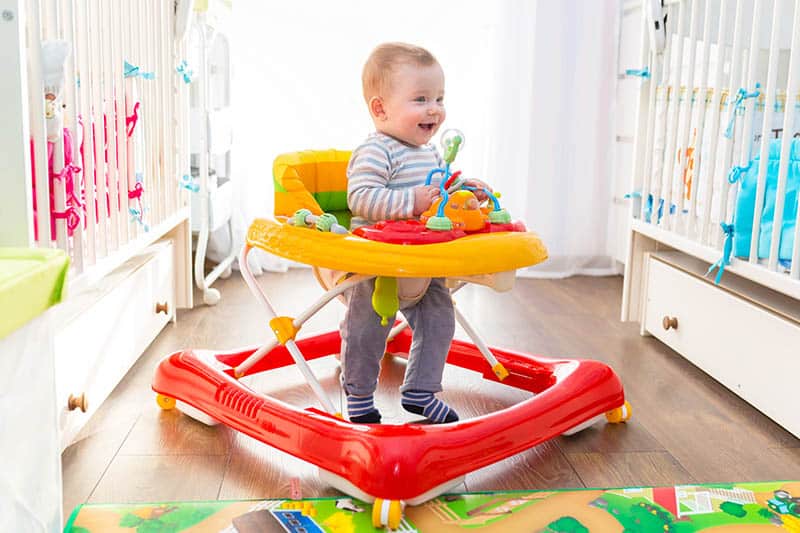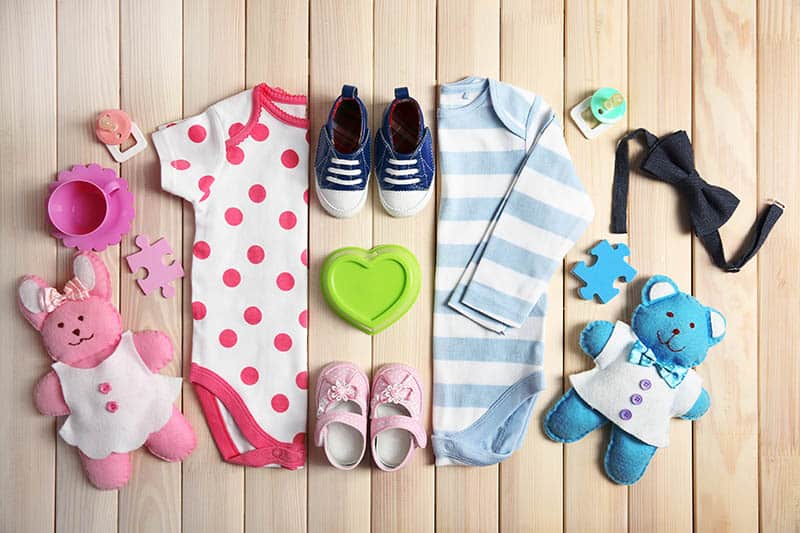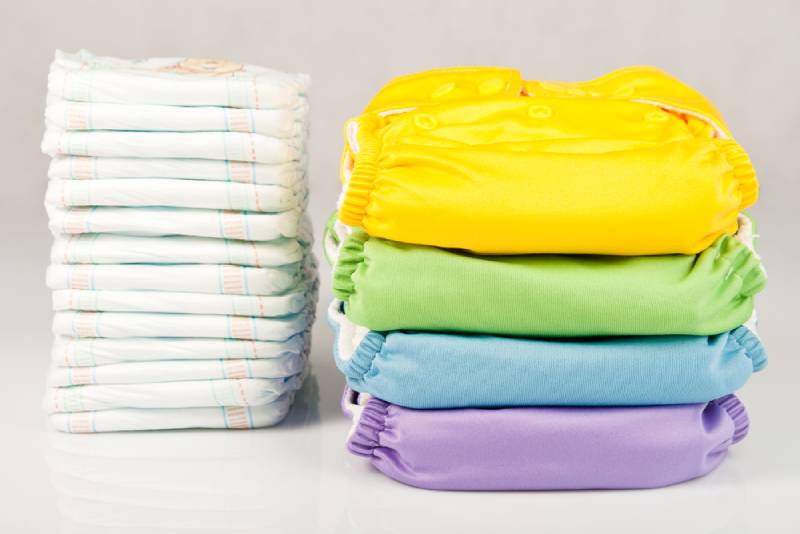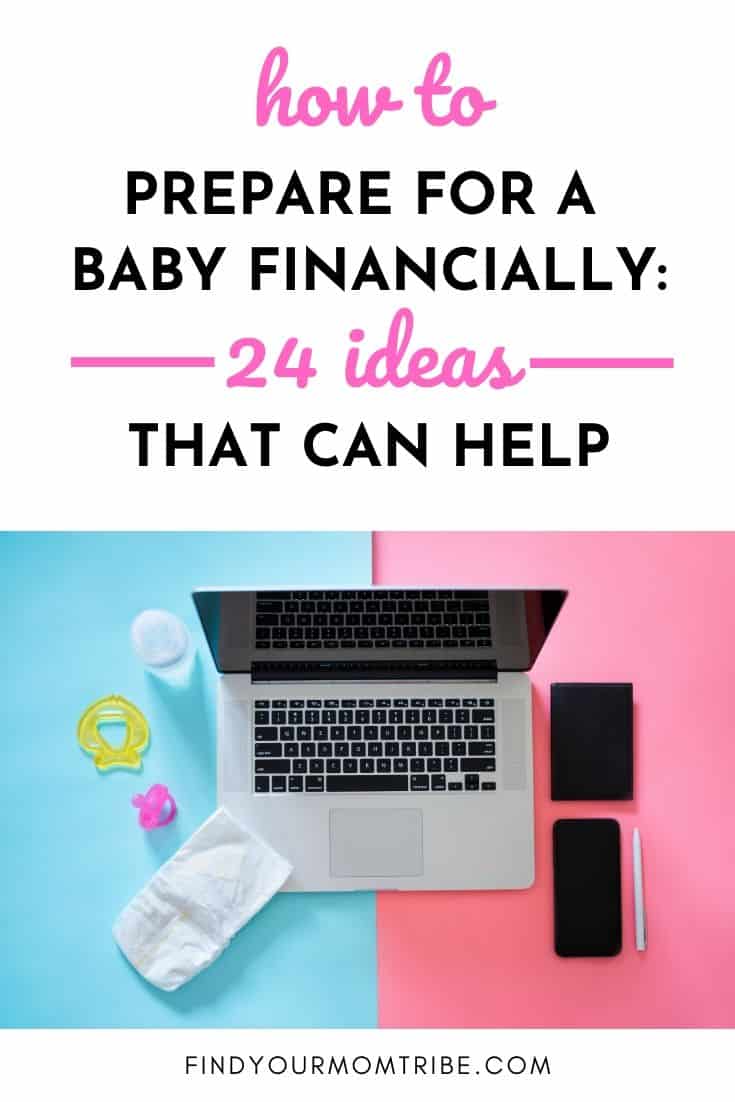Having a baby is expensive. However, you can cut costs if you learn how to prepare for a baby financially. People who commit to financial planning while expecting a new baby save twice as much as those who don’t.
Expecting a new family member can be exciting and overwhelming. Nevertheless, you need to prepare financially so as to eliminate the fear of going into debt when you should instead be enjoying precious time with your newborn.
To manage the high cost of having a baby and the cost of raising a child, you need an effective action plan that should focus on how to cover the expenses you will incur during the period before the baby drops and after your newborn’s arrival.
You should also start saving as soon as possible because you are going to need a lot of money for all the baby stuff.
RELATED: Saving Money Motivation: 10 Tips to Reach Your Savings Goals
Consider creating a separate savings account for this. It is also important to know where you stand financially.
If you already have a lot of debts apart from the mortgage, it is advisable to get it under control before having a baby.
Chances are that your debt will increase once your baby arrives, so it would be smart to avoid making mistakes when getting out of debt .
Start thinking about your budget too, focusing on your budget calendar and on the things you specifically need.
Find out what you want your life to look like with a baby in the picture and start working towards that.
If you want to know how to prepare for a baby financially, here is a list of things to note.
Pre-Baby Expenses Planning

There are some pre-baby expenses you need to include in your budget.
1. Doctor visits

A very large part of the money you will be spending on having a baby will go to checkups.
However, these checkups will depend on your health care provider and also if the pregnancy is considered a high-risk one.
Normally, a pregnant woman would visit her doctor or midwife a few times during the first two trimesters, once a month starting from the third trimester, and once a week during the final four weeks.
You need to review your health insurance policy to know what it covers and the expenses you are responsible for.
Even with health insurance, there are some out-of-pocket expenses you might be liable for when it comes to childbirth and family coverage.
It’s a good thing if your health insurance covers some prenatal expenses, but you need to check to know what it doesn’t cover.
Looking into your health insurance policy will help you know what you are up against early enough for you to start saving.
2. Ultrasounds and tests

If you want to know how to prepare for a baby financially you need to pay attention to the tests and ultrasounds you need to make.
Ultrasounds offer great opportunities to take a look at your baby, but the bills can add up really fast if your insurance doesn’t cover it.
You may receive separate bills for ultrasounds in addition to those for checkups/doctor visits.
Depending on your insurance policy, insurance can cover some basic scans and standard tests; however, anything outside what your insurance provider covers will incur additional costs to you.
3. Food needs
What you eat will determine how strong and healthy your baby will grow.
Your baby needs a variety of nutrients, which means that your diet should include certain items like fruits and vegetables with lots of folic acid (hello, delicious pregnancy smoothies!), as well as a variety of wholegrains and foods rich in iron and protein.

4. Prenatal vitamins
Prenatal vitamins are essential to the health of your growing baby. Fortunately, it won’t cost you so much.
Depending on the vitamins you select, a month-long supply of over-the-counter prenatal vitamins will cost $10 to $30.

5. Maternity wear
Clothes are actual needs for you, since you’ll be growing a little human for the next nine months.
But you don’t need to spend a lot of money on maternity wear when there are obviously more important things to save money for.
You should take a fresh look at your closet. You may find some loose-fitting clothing that can fit your bump.
You can also shop for second-hand clothes since you’ll be needing them just for a while. Check for mom-to-mom sales around you.
Many people just want to get rid of extra clothes.
You can find pocket-friendly deals by looking out for pre-owned maternity clothes instead of new ones.

6. Baby gear
Of course, you know you need a crib plus the mattress and sheets, but for the first few months, you’ll probably need a bassinet to keep the baby close.
It’s best to borrow a bassinet if you are looking for ways to cut costs, since you’ll be having the baby in it only for a few months.
You’ll also need a spot to change the baby’s diapers and other things like baby bottles, baby monitor, baby bathtub, high chair, baby walker and playpen.
It’s okay to borrow items from your friends if you can’t afford to buy them.
Remember to get the other things you’ll need when going out, like a diaper bag and stroller (I highly recommend 3 in 1 baby stroller) – and don’t forget to install the car seat.

7. Plan for a complicated delivery
Due to the unpredictable nature of labor and delivery, parents are advised to set aside a budget that will cover for unforeseen circumstances.
It is not new to find healthy pregnant wives that go into labor earlier than expected; neither is it new to find pregnant women with complications that may require special attention in the form of an emergency C-section.

When issues like these arise, and there are no plans or budget to cover the extra expenses that come with it, it can easily disrupt the family.
Even insurance companies today provide insurance for different birth situations. If you are thinking on how to prepare for a baby financially, you need to think about this as well.
Delivery Expenses Planning
After all the pre-baby expenses, the next thing is to bring your bundle of joy into the world.
However, there are a few expenses you need to cover. A normal delivery will cost you a certain amount.
In the United States, the cost varies from state to state. A C-section will cost higher than a normal delivery, and again, the cost varies from place to place.
Find out what is obtainable where you live and factor it into your budget.
Beyond delivery, there are also other costs.
Depending on the delivery method, you will have to stay in the hospital or birthplace anywhere from one to four days.
If complications arise, you may need to stay longer and this means more cost, since a mother’s stay and meals add up per day.
Other costs such as induction, excessive monitoring, staying in the NICU, or prolonged anesthesia can add to your medical bills, if there’s a need for them.
If you are unsure of what the delivery fee covers, make sure to ask about these costs ahead of time.
Your birthing facility should be able to give you a breakdown of expected medical costs.

Ensure that you check with your insurance provider and doctor to know your actual out-of-pocket expenses.
When delivery time comes, you don’t need to pack all your baby gear to take to the hospital.
While it’s good to go prepared anyway, there are only a few items you need.
Things to take along with you to the hospital are:
- A swaddle blanket
- Nursing bras
- A pair of slippers
- Toiletries
- Something to watch or read
- Cell phone charger
- A night gown or maternity robe
- Your own pillow
- Camera
- A going-home outfit for your little one
Post-Baby Expenses Planning

You don’t need to purchase every other item brand new.
You can check with a sibling or friend for a crib, and baby monitor from a consignment shop.
Other items you will need for your new arrival include:
1. Baby clothes
You don’t really need to buy all your baby clothes brand new.

Also, check for mom-to-mom sales for moms that just want to get rid of clothes they don’t need anymore.
Your little one only needs these clothes for a while, so you can actually cut costs from here and put the money into other pressing needs.
Also, due to all the extra laundry, you may get higher water and electricity bills. To manage this, wait till you have a full load of dirty baby clothes then wash them once.
You shouldn’t worry about dirty clothes piling up; it won’t be long before the washer gets filled.
2. Formula
It is least expensive to breastfeed your baby. Yes, breastfeeding saves you money, so it may even be more convenient to breastfeed exclusively for stay-at-home moms.
Nonetheless, not all moms can breastfeed exclusively.
Some moms feed their babies formula and breast milk too, while others breastfeed for several months and then switch over to formula.

If you choose to buy formula, you can try powdered formula, which is less costly than ready-to-use and liquid concentrate.
You can also try cow’s milk formula, which is a less expensive alternative to the soy formula (unless your pediatrician says you shouldn’t.)
You should also try generic formulas instead of brand-name formulas, since most have similar quality and nutritional standards.
Also, buy in bulk to save some money.
3. Plan for maternity leave
This is one detail that is often overlooked by parents when applying for maternity leave in their place of work.
Some companies have a policy of not paying their workers who are on maternity leave, some prefer to pay a token of your basic salary, while others will pay your complete salary with bonuses.
You must understand your company’s policy relating to maternity, to avoid making your budget on the wrong assumptions.

4. Child care
Talk of services that are super expensive, child care is definitely one. Child care options are very pricey.
However, being a stay at home parent can remove this cost. You also get to spend more time with your baby.

5. Diapers
By using disposable diapers, you save yourself the time you would ordinarily spend in washing cloth diapers.
That said, the cost of buying this product again and again add up to a lot of money.
Instead of spending all that money on disposable diapers, you can try reusable ones.

6. Pick a pediatrician within your insurance network
You need to have a pediatrician chosen before your baby’s first doctor appointment.
Ask your family and friends for recommendations before you make your choice.
Check to ensure that the doctor you choose is within your insurance network.
Avoid unexpected costs or out-of-pocket expenses by asking the clinic and checking with your insurance company.

7. Buy used toys
Many new parents who don’t know how to prepare for a baby financially spend a lot of money on toys.
Babies will need some age-appropriate toys to grow with, especially as they hit growth spurts and major developmental milestones like rolling over, crawling, or walking.
You can check out consignment sales or your local thrift store for nice toys for less than half the retail price.
8. Find space in your rooms
You actually don’t need to move into a new house or a bigger house just because you have a new baby.
You sure need a room for the crib but don’t push yourself into debt just for an extra bedroom.
Rethink the space you have and see what you can make out of it.
Kids can share rooms, guest rooms can go, and you don’t need a playroom if there’s no room for it. All you need is your creativity to turn your home into a play area!

9. Keep your eyes on the basic things
There are surely so many things you want for your baby, but they may not really be so essential.
Babies are not really complicated, so forget the wipe-warmers.
Don’t blow your budget on buying non-essentials.
Instead, focus on what they really need.
RELATED: 6 Helpful Ways To Cope With Money Worries For Moms With Anxiety

10. Buy generic products
What you pay for when you insist on buying strictly the brand name of everything is the fancy packaging and the high cost of marketing the product.
You are not giving up taste or quality by buying generic brands at a lower price.
In other words, brand names are often of the same quality as generic products.
Read labels carefully and spend less money by buying generic.

11. Start or check your “Rainy Day Fund”
There’ll always be emergencies with kids since they are prone to accidents.
If you don’t have an emergency fund, now is the time to expect some emergencies. Also, a sinking fund might be a good idea.
The cost of raising a child is already high, so you don’t want to add unexpected expenses into the mix.

12. Add your baby to your health insurance plan
In most cases, 30 days from your child’s birth date is all you have to add your new addition to an existing health insurance policy.
However, it’s better to do this sooner than later, unless you want to be caught with a sick child and no insurance.

13. Get your child a life insurance policy
Often times, parents don’t consider taking out a life insurance policy on their children, since no one plans for such a tragedy.
A child’s life insurance policy is used to cover funeral expenses and little else, so the rates are generally low.
A “term” policy that lasts until a child reaches adulthood is the most popular choice when it comes to covering children.

14. Write your will
We don’t always plan for tragic situations, but they happen anyway.
Write a will or make adjustments where necessary if you already have one, designating a guardian for your child so the court won’t have to decide that in case of loss of parents.

15. Adjust your beneficiaries
You may want to add your child as a beneficiary to your life insurance or savings.
You should also remember to make adjustments in your will and/or trust to ensure how and when your child can have access to the money.

16. Food delivery
As a new parent, especially the mom, the last thing on your mind after giving birth is to spend hours in the kitchen preparing a meal or going grocery shopping.
That is why it is crucial to make arrangements with local stores around to get your favorite meal delivered to your doorstep.
It will save you a lot of stress, at least until you have enough time to do your cooking yourself.

17. Save for your child’s education
Starting now to plan and save for your child’s college education can take a lot of weight off your shoulders in years to come.
The best thing you can do to secure your child’s future is to encourage him to go to college and get a good education.
College is costly, but you can make it more manageable if you start a college savings plan early.
Surviving the first year with your baby in the picture can be expensive, but with a budget, you’ll do just fine.
Don’t waste time fretting over the cost of having a baby, instead, focus on living by the plan you have made.
You already know that there are so many things to prepare for financially, as well as how to manage the cost of most of the baby stuff you need.
However, there are several other ways for you to cut expenses and put all that money into your savings account for the big baby expenses on the way.
All you need to do is categorize your expenses to find out areas where you sort of overspend, and then apply a minimalist approach so as to cut costs that will go into your savings.
RELATED: How Do We Cut Our Budget When There’s Nothing Left To Cut?
Try as much as possible to stick to your shopping list when you’re at the store.
You might find so many lovely items you feel your baby will need and so fill up your shopping cart with things you never planned for.
This can cut a hole in your purse and make you spend out of your budget.

Pets are cute, but a pet budget adds to your expenses significantly.
As it stands, your bundle of joy should be your priority. See how you can strike a balance between keeping a pet and having a baby.
Also, allowing food to go bad without eating it can cut a hole in your purse.
Make sure to buy only what you need so that you don’t throw food away, which is just like throwing away money.
Buy reusable products instead of disposables. Instead of disposable water bottles, buy reusable ones.
The same goes for disposable plates, cups, and paper towels.
The cost of buying these products all the time adds up to a pretty penny. Spend the extra time washing the dishes and save the extra money.
Also, so much of your money goes into buying convenience food.
You can spend less money on food if you make it from scratch for less than what you pay for convenience.
You should also strike out eating from your plan. Try budget meal planning and prepare all your food at home.
Check some of your habits that involve spending money and cause budget leaks.
You can try replacing them with those that don’t require spending.
Live within your means. Fight the temptation of spending more than you earn.
You actually don’t need to what others are doing to impress people. All that matters is that you and your baby are fine.
Stick to your plan and stay ahead of your financial situation.
Final take
When preparing for the arrival of a baby, it’s almost impossible to figure out all the various factors to plan for.
However, what we can do is take a thorough survey and try to plan towards the most common occurrences, just like we have done from the list above.
READ NEXT:
- How To Afford To Be A Stay At Home Mom: 18 Useful Tips
- Make $50 A Day While Being A Stay At Home Mom: 21 Amazing Tips
- 20 Different Money Saving Challenges Stay-At-Home Moms Can Try
Like this article? Please share or pin it for later. You can also stay in the loop and follow us on Facebook, Instagram or Pinterest.

This post contains affiliate links. Please see our full disclosure for more info.

